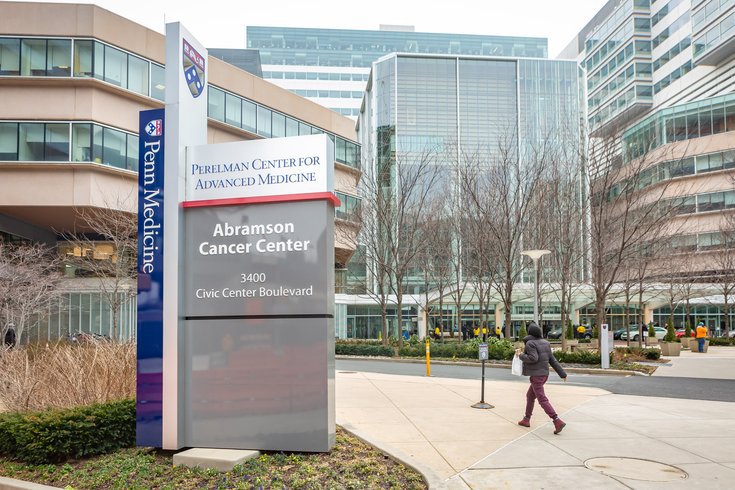
March 23, 2021
 Thom Carroll/for PhillyVoice
Thom Carroll/for PhillyVoice
Researchers at Penn's Abramson Cancer Center are testing the use of anti-androgen drugs to prevent serious infection in patients with COVID-19.
Researchers are getting closer to linking higher death rates from COVID-19 among men to sex hormones, prompting research into promising treatments for the disease using cancer drugs that block the coronavirus from infecting cells.
The research, led by the University of Pennsylvania's Abramson Cancer Center, looks at the roles of androgens — a group of hormones that regulate sex characteristics in men. Scientists already know that blocking androgens is an effective treatment for stopping the spread of prostate cancer.
Now researchers believe these drugs can weaken the ability of the coronavirus' spike protein to bind to cells and begin replicating virus.
Men and women both have androgens, including testosterone, dihydrotestosterone and androstenedione. The hormones are more prevalent in men, playing a key role in everything from reproductive development to balding and the development of prostate cancer.
They may also explain, in part, why men typically have worse outcomes with COVID-19 than women.
Studies from around the world have found that men have more severe responses to COVID-19 and die from the disease at higher rates. Some of the reasons given for this include weaker immune systems, higher prevalence of heart disease and higher rates of liver disease and high blood pressure.
Other research has pointed toward cultural factors and the behavior of men as possible clues about patterns of exposure to public health risks, including COVID-19.
But if androgens play an important part in enabling the coronavirus to infect cells, it suggests that men also are more susceptible to severe disease because the virus can attack their organs more efficiently.
Penn Medicine researchers are investigating how anti-androgen drugs can block receptors that are used by the coronavirus to gain entry into host cells. Specifically, the coronavirus spike protein uses these receptors to infect cells and replicate.
“We provide the first evidence that not only (receptor) TMPRSS2, which is known to be regulated by androgen, but ACE2 can also be directly regulated by this hormone,” said Irfan A. Asangani, a cancer biologist at Penn and senior author of a new study published in iScience. “We also show that the SARS-CoV-2 spike relies on these two receptors to impale and enter cells, and that they can be blocked with existing drugs. That’s important because if you stop viral entry, you reduce the viral load and disease progression.”
Clinical trials on the use of anti-androgens have been ongoing in Denmark and Brazil.
Earlier this month, Brazilian researchers investigated the use of proxalutamide, an anti-androgen therapy generally given to prostate and breast cancer patients, for the treatment of COVID-19.
Among 600 hospitalized patients in the Brazilian clinical trial, the drug reduced mortality risk by 92%. The median hospital stay was shortened by nine days compared to standard treatments.
Researchers at Penn are now exploring the anti-androgen drugs Camostat and enzalutamide to inhibit androgen receptors in mice who have been infected with a lab variant of the coronavirus. Camostat is typically used to treat pancreatitis and enzalutamide is used to treat prostate cancer.
Paired together, the two drugs effectively blocked entry of the coronavirus into lung and prostate cells.
The mice treated with these anti-androgen treatments showed minimal or no expression of the two receptors the coronavirus uses to infect host cells. Viral load in the mice was significantly reduced.
As a next step, the researchers hope to test these drugs and other anti-androgen therapies using a live coronavirus and its emerging variants, which are often differentiated by their spike proteins.
The study was supported by the National Institutes of Health, a Department of Defense Idea Development Award, a Conquer Cancer Now Award and the Sarcoma Foundation of America.